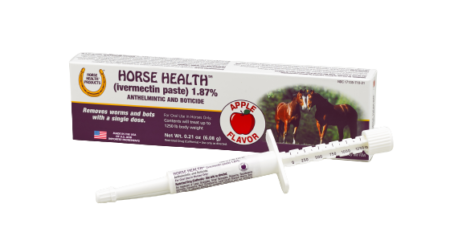Ivermectin gets a trial, and … honestly, you know you’re going to open this now (and more)
19 Feb 2022
Posted by Andrew Kantor
Safer than you think, Dad! Safer than you think!*
Some people stop taking statins out of fear of side effects like muscle pain. But those effects might be caused more by stories about side effects than the medication itself.
In fact, Polish researchers found — after studying the records of more than 4 million patients — that “statin intolerance is over-estimated and over-diagnosed” to a huge degree. In reality, they say, fewer than 10 percent of statin users actually suffer side effects. (It’s as low as 5.9% when you use the European Atherosclerosis Society’s criteria.)
“Our findings mean that we should evaluate patients’ symptoms very carefully, firstly to see whether symptoms are indeed caused by statins, and secondly, to evaluate whether it might be patients’ perceptions that statins are harmful — so called nocebo or drucebo effect — which could be responsible for more than 50% of all symptoms, rather than the drug itself.”
* I’ll take ‘Semi-obscure Stephen King References’ for $400, Alex.
Thinking about a change?
Pharmacy careers aren’t limited to retail or hospital work — you’ve got options. Wondering what those options are? GPhA’s got a webinar for you!
It’s Getting Hot in Here… Hot Pharmacy Jobs That is! features the incomparable Johnathan Hamrick, PharmD, and a panel of pharmacists who are currently practicing in these hot, trendy settings. They’ll explain the job requirements, responsibilities, and a typical day in their life. And, of course, take your questions.
The webinar is Thursday, February 24 from 7:30 – 9:00 am via Zoom. Click here for the details!
Oh, and check this out: It’s only $20 for GPhA members ($49 for non-members) and you get 1.5 hours of CE, too. Whee!
Giving type A an ‘O’ face
People with type O blood are universal donors, but they can only receive blood and organ transplants from other type O people. (You knew this.) But in a potential Really Big Breakthrough, Canadian researchers say they’ve found a way to ‘convert’ lungs from type A to type O “without heavily damaging them or causing acute rejection.”
Essentially, they used a pair of enzymes to remove the type A antigens from donated lungs, “effectively converting them into type O lungs” by removing 97 percent of those antigens.
Afterwards, the team exposed the lungs to blood plasma from type O individuals and documented minimal reaction from normally hostile antibodies, indicating that the lungs could be safely tolerated in these people.
And yes, the same process could be used on any organ, they said. But of course “It will take more research” before this leaves the lab.
Sure, keep taking those anti-rheumatics
You’ve got a patient taking anti-rheumatic drugs — specifically biologic ones (sometimes called bDMARDs), and they’re going in for orthopedic surgery.
Should they stop taking the drugs? Is there a risk of infection? Good question. The tentative answer, at least according to a team of British and American doctors, is no — the drugs are safe, and “[do not appear to increase the risk of surgical site infections or delayed wound healing.”
Of course, they don’t want to promise anything, so they add this:
However, our conclusions are limited by the retrospective and heterogenous nature of the data, and possibly by a lack of study power.
Ivermectin trial starts
There’s really no evidence that ivermectin helps treat Covid-19; the only studies suggesting so have been withdrawn, debunked, or were meta-analyses that used the withdrawn/debunked studies. But what about higher doses of ivermectin?
Duke and Vanderbilt University researchers are going to try to find out. They’re building a nationwide study that will test ivermectin and two other repurposed medications (i.e., FDA-approved FDA for other conditions) that “have shown potential for treating Covid-19 in the outpatient setting, but they need to be evaluated in a larger, more rigorous and randomized clinical trial to determine efficacy and safety.”

Mmmm, apple flavor!
Could beta-blockers fight colon cancer?
Obviously the answer is “Yes,” or at least “Maybe.”
A Kiwi biologist testing existing medication against colon cancer found that cancer stem cells had a lot of renin-angiotensin system (RAS) components — coincidentally, just what beta blockers happen to target.
So he tested those beta blockers, and yep, they impaired the function of the cancer stem cells.
If further research does confirm this [it] could eventually lead to a new treatment approach for colon cancer that affects cancer stem cells through targeting the RAS, using off-patent, low-cost, and commonly available oral medications with very low side effects.
The body heals, the mind takes longer
Just because you get past Covid itself, and even if you don’t deal with long Covid, the virus just keeps on giving. New data-crunching from Washington University in St. Louis finds that people who have Covid “have a significantly higher chance of experiencing mental health problems.”
Not a small chance, either — we’re talking a 60 percent overall greater risk of … “anxiety, depression, and suicide ideation, as well as opioid use disorder, illicit drug and alcohol use disorders, and disturbances in sleep and cognition.”
From the nose to the brain
Here’s a disturbing finding: Bacteria that live in your nose might be able to enter the central nervous system by using the peripheral nerves between the nasal cavity and the brain. Once there, the brain reacts within days. Know what it does? It begins depositing beta amyloid peptide, the plaque associated with Alzheimer’s disease.
And then: “After several weeks, numerous gene pathways that are known to be involved in Alzheimer’s disease are also dramatically activated.”
The bit of good news is that they don’t think just anyone is at risk. “[I]t requires the combination of a genetic susceptibility plus the bacteria to lead to Alzheimer’s disease in the long term.” But still.

Safety first


